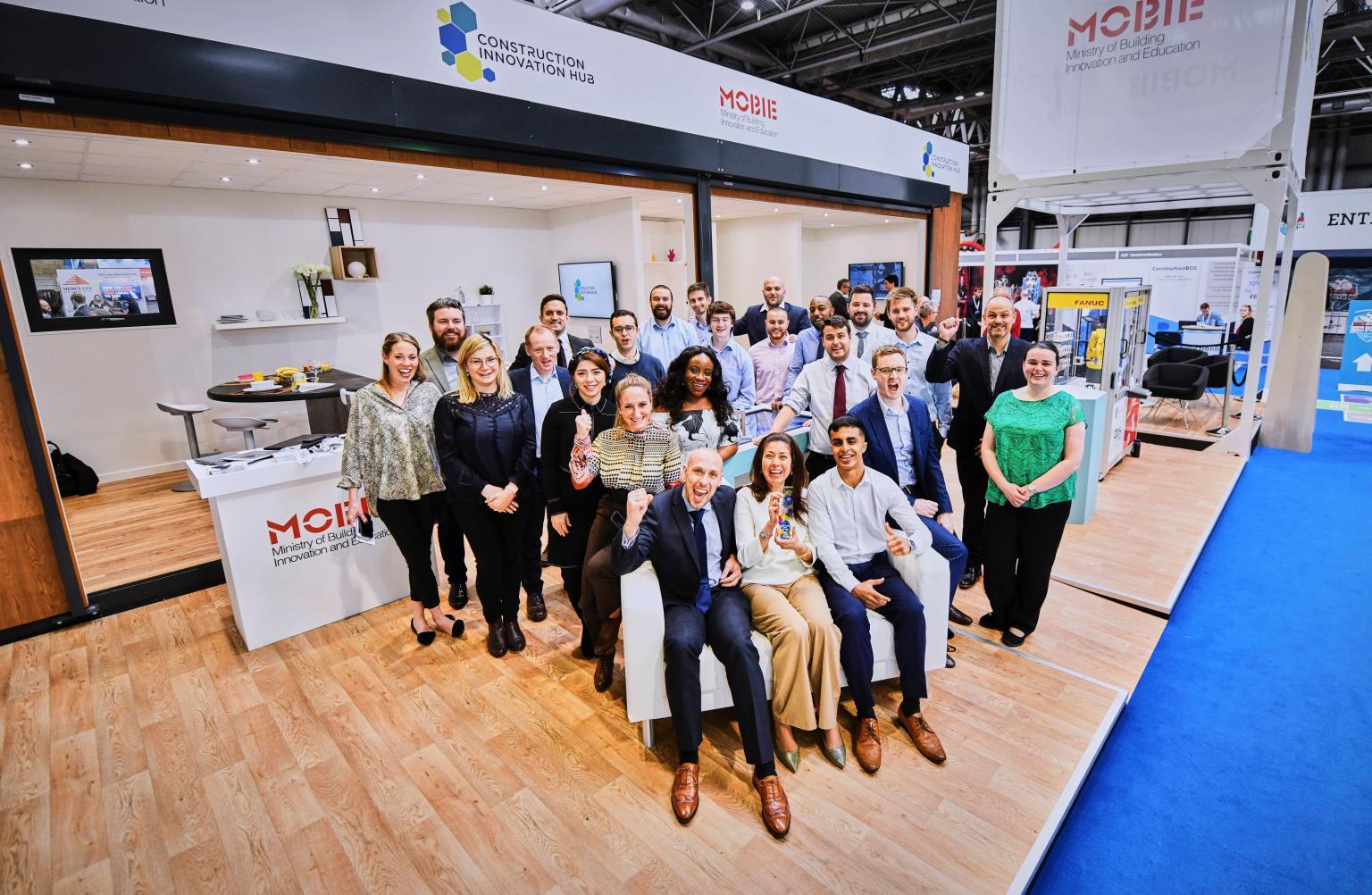
Submitted by Angela Walters on Fri, 18/10/2019 - 11:52
CDBB and the Construction Innovation Hub have just completed the ‘6 week burst’ - an intense period of engagement activity starting with CDBB week, including UK Construction Week and concluding with Digital Construction Week this week. Dr Reyhaneh Shojaei, a Research Associate at the Cambridge Centre for Housing and Planning Research in the Department of Land Economy, has been involved in many of our activities as part of the 6 week burst. In this blog, Rey makes the case for considering the socio-economic inhibitors to the take up of digital innovation in construction.
CDBB’s programme to support the digitally-enabled transformation of the built environment connects researchers and industry professionals from across a range of disciplines on the journey to build a digital built Britain. Dr Reyhaneh Shojaei, a Research Associate at the Cambridge Centre for Housing and Planning Research in the Department of Land Economy, makes the case for considering the socio-economic inhibitors to the take up of digital innovation in construction.
Construction and housing lag behind many other industries in taking advantage of new technologies. However, transforming construction is a social, cultural, economic and political challenge – not simply a technical problem. Despite the complexity of the challenge, most existing research focuses largely on technical aspects and not on the contextual factors that determine their implementation.
Transforming construction through academic research requires insights from a social science perspective in order to analyse the key social, cultural and behavioural factors inhibiting digital uptake in the construction sector – factors holding back transformation across the construction supply chain.
The aim of my research is to understand stakeholders’ interests and attitudes, concepts of value, opportunities and constraints, and potential impacts on the sector. By interviewing a wide range of supply chain stakeholders I will amass information to enable a better understanding of issues; in addition, I plan to analyse ithe relationship between technology, digital innovation and different stakeholders. Interviewing professionals not directly involved in construction – such as local government, planners, financiers and insurers/warranty providers – will help to understand the contribution these roles make in enabling the transformation of construction through digitisation. I will explore how stakeholder attitudes and strategies, combined with the adoption and employment of technology, affect and are affected by the advancement of new technology.
Working closely with industry partners I aim to identify and test viable solutions to specific barriers to deliver targeted outputs, such as guidance to industry to include input from the Construction Leadership Council. In seeking to measure outcomes and benefits and the value of such innovation, I will also gather evidence from both successful and unsuccessful use cases. This will provide an evidence-based case study for the sector aiming to support greater uptake of digital innovation – and to better understand challenges and failures.
Scoping work to date indicates existing engagement with digital innovation in the construction sector is often narrow in focus and innovation is not connected across value chain use cases. In fact, connections between and within use cases are very limited. Additional constraints on the adoption of digital tools and technologies by the sector emerge from the fragmented nature of the industry, inadequate collaboration with suppliers and contractors, difficulties in recruiting a talented workforce, and insufficient knowledge transfer from project to project.
The full potential value of digital construction technologies can only be secured if the challenges – including a lack of appropriate skills, insufficient levels of commitment, the absence of an evidence base on which to base investment, difficulties with company-wide strategies for rolling out new services, and a lack of compatibility with legacy systems – are overcome. These challenges require social as well as technical solutions – a gap my research seeks to address.
Taking a cross-disciplinary approach to research invites richer information. CDBB’s research programme reflects an understanding of the benefits of collaboration across disciplines. The application of social science tools to the forecasting and interpretation of the digital built Britain programme will enable insights to underpin better decisions, more effective implementation born from a deeper understanding of the social dynamics at play as well as the demonstration and adoption of new technologies. Benefits of BIM and other digital innovations will only be delivered when they are recognised and used by construction sector stakeholders.
CDBB’s programme to support the digitally-enabled transformation of the built environment connects researchers and industry professionals from across a range of disciplines on the journey to build a digital built Britain. Rey’s research is supported by the CDBB and the Construction Innovation Hub with funding provided through the Government’s modern industrial strategy by Innovate UK, part of UK Research & Innovation.
